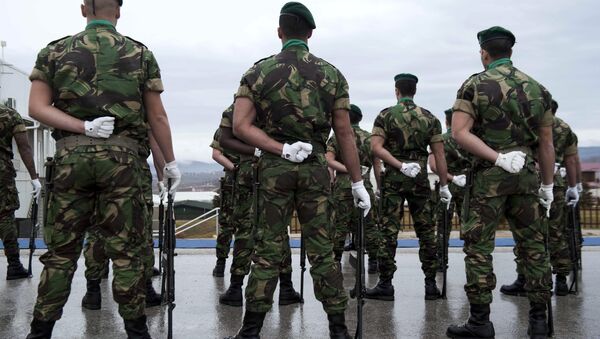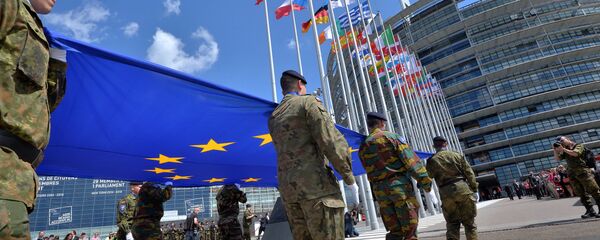On December 11, the European Council established the Permanent Structured Cooperation, less than a month after receiving a joint notification by member states of their intention to participate.
“PESCO is just another attempt to ramp up cooperation, but not integration, in defense and security […] it is certainly not a budding single European army. I don’t understand why everyone is saying that. It is nonsense. PESCO is mainly about industry and technology where every decision is made by a unanimous vote,” Branco emphasized.
He also tried to cool the heads of those who view PESCO as a sign of the Europeans elites’ unhappiness with the United States’ ability and willingness to defend the so-called Western World.
In an interview with Sputnik Brazil, Sergio Azevedo, deputy head of the Social-Democratic party’s parliamentary faction, said that the idea of creating PESCO came in the wake of the growing terrorist threat in Europe, Brexit and Donald Trump’s election as US president.
He noted that Trump’s presidency was prompting Europeans to get more serious about continental security, but added that PESCO was by no means meant to compete with NATO, only to help the Alliance.
“Activation of PESCO was agreed upon and discussed during the latest NATO summit in Warsaw,” Azavedo emphasized.
On November 13, 2017, European Union member states signed a joint declaration calling upon the European Council to adopt a decision establishing a Permanent Structured Cooperation (PESCO) on defense, which would allow both to increase the volume of investments on military technologies and to step up the level of coordination in this area within Europe.
The commitments signed so far by 23 EU countries include a “successive medium-term increase in defense investment expenditures to 20 percent of total defense spending in order to fill strategic capability gaps,” and “increasing the share of expenditure allocated to defense research and technology with a view to nearing the 2 percent of total defense spending.”
READ MORE: There Can Be No European Army 'Without NATO's Blessing' — Serbian General
The increase of the European defense budget has been a US request for a long time, as the majority of EU countries do not meet NATO’s target of spending 2 percent of GDP on defense.



